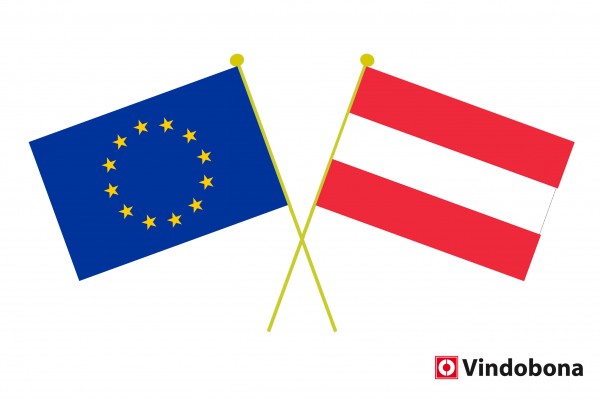Sponsored Content
European Movement Austria Presents Reform Ideas for the EU Single Market
Europe has achieved a level of prosperity that no previous generation has experienced. The EU Single Market, which celebrates its 30th anniversary this year, is the key to this success. The future of the Single Market was the focus of a panel discussion of the European Movement Austria (EBÖ) at THE LEO GRAND in Vienna.
 The European Movement Austria (EBÖ) is the non-partisan platform of pro-European forces from civil society, politics and business in Austria and at the European level part of European Movement International. / Picture: © European Union and Austrian crossed flags by Vindobona
The European Movement Austria (EBÖ) is the non-partisan platform of pro-European forces from civil society, politics and business in Austria and at the European level part of European Movement International. / Picture: © European Union and Austrian crossed flags by Vindobona
Dr. Christoph Leitl, President of the EBÖ, Dr. Franz Fischler, former EU Commissioner, Dipl.-Ing. Dr. Sabine Herlitschka, MBA, CEO of Infineon Technologies Austria AG, Mag.a Maria Maltschnig, Director of the Karl-Renner-Institute, as well as Univ.-Prof. Dr. Ewald Nowotny, President of the Austrian Society for European Policy (ÖGfE), discussed the further development of the Single…
or Log In
Fast News Search





